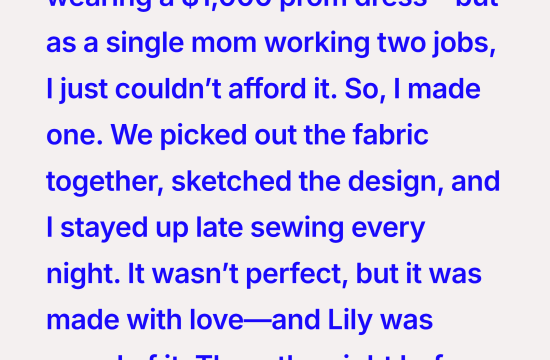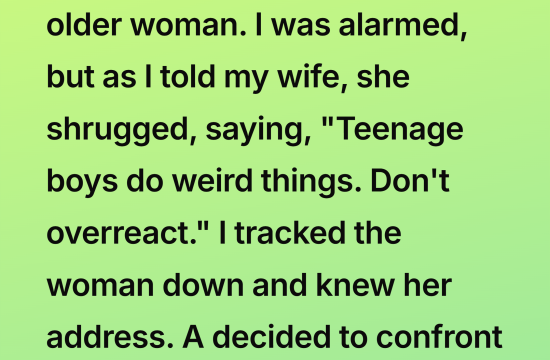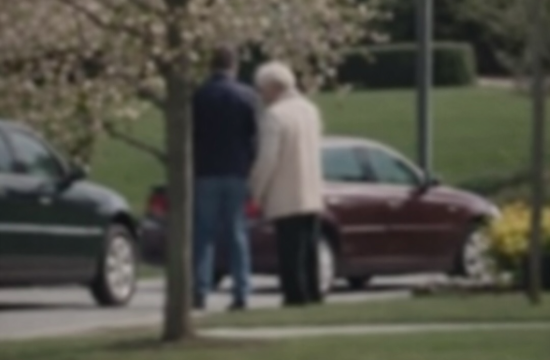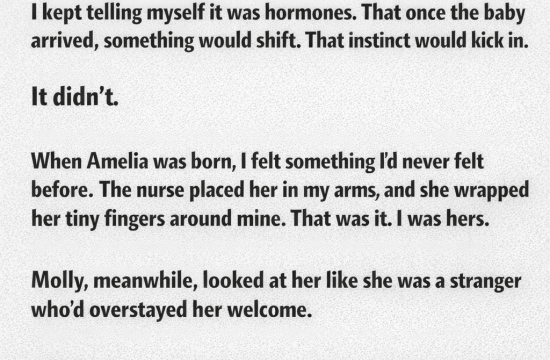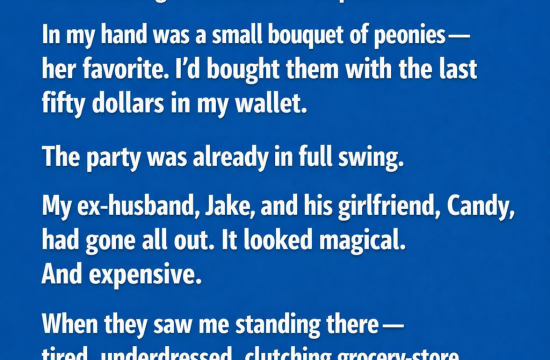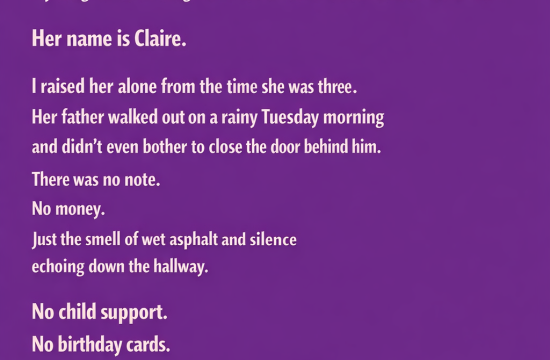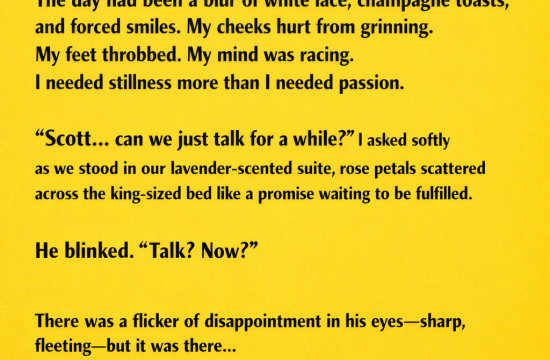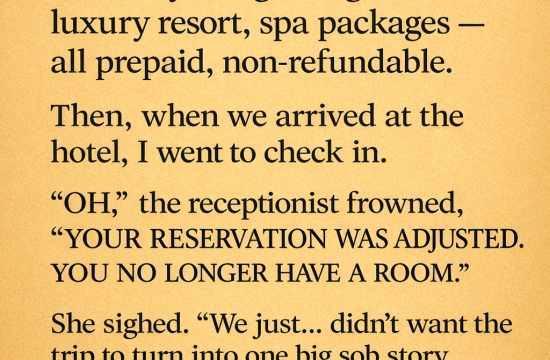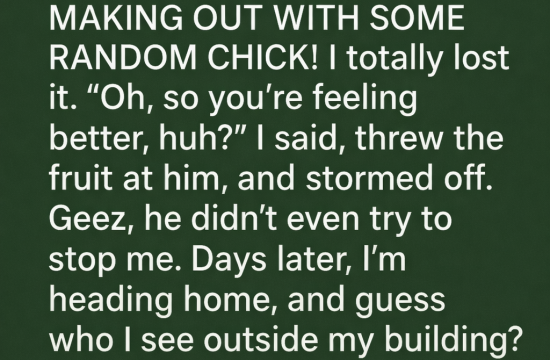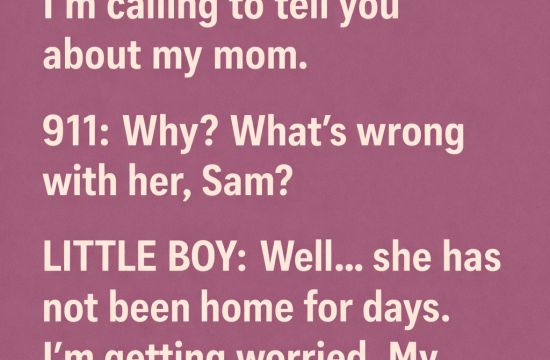As soon as my grandfather’s funeral ended, my mother pulled me aside from the guests and said, “Son, you did such a good job taking care of Grandpa. I heard he left you his house. WELL, YOU NEED TO SIGN IT OVER TO YOUR SISTER. She has little kids, and you’re a young bachelor—you’ll buy yourself a new one someday.”
My jaw dropped. But I held my voice steady.
“Mom, I… I need to think about this.”
She looked at me like I’d just kicked a puppy.
“Think about it? You can’t be serious, Darian. Your sister needs this. Don’t be selfish.”
A swirl of confusion and quiet fury rose in me. I’d just spent two years living with Grandpa Zephyr—feeding him, bathing him, listening to his stories, watching him slowly fade. I missed work. I lost friends. My girlfriend left me, saying I cared more about Grandpa than her.
And now, moments after we’d buried him, my mother wanted me to hand over the only thing he left me?
I nodded to end the conversation, but inside, I was reeling.
That night, I couldn’t sleep. I walked through Grandpa’s old house. Every creaking floorboard whispered memories—his laughter, his advice, the way he’d sneak me cookies before dinner.
In the kitchen, I spotted his old tin box on the table. I opened it, expecting dusty papers or keys. Instead, I found a stack of letters—all addressed to me. Grandpa had written them over the past year.
The first one read:
“Darian, you’ve given me more love and respect than I ever imagined I’d get at the end. This house is yours not out of duty—but because of love. Don’t let anyone make you feel guilty for that.”
I broke down. Those were the exact words I didn’t know I needed.
The next morning, Mom called. Her voice was colder than usual.
“Well? Your sister’s kids are already picking out which rooms they want.”
“I haven’t decided yet.”
She sighed theatrically. “Darian, don’t be stubborn. You know what’s right.”
But what was right? Rewarding my sister Daphne—who didn’t visit Grandpa once during his last year because she was “too busy with the kids”? Letting her children run wild through the only place where Grandpa and I ever truly belonged?
I needed clarity. I drove to Daphne’s house.
She greeted me with a smile that assumed she’d won.
“So, when can we move in?”
“I haven’t decided,” I said.
Her smile vanished. “What do you mean? You know Mom’s right.”
“Do you?” I asked. “You never came. Grandpa asked for you all the time.”
She shrugged. “I had things to do. My kids needed me.”
I left more torn than ever. The guilt felt like a fog. That night, I called Grandpa’s lawyer, Mr. Connolly.
He said it plainly: “Your grandfather’s will is crystal clear. The house is yours. No one can force you to give it up.”
I thanked him, but guilt still clung to me. Was I being selfish? Shouldn’t kids have a home?
To clear my head, I spent the weekend at the house. On the second night, there was a knock.
It was Mrs. Pritchard—Grandpa’s neighbor—holding muffins.
“Your grandpa was so proud of you,” she said. “You made him feel young again.”
She stayed for tea and told me how Grandpa once sold his coin collection to pay for my tonsil surgery when I was eight.
Her words cracked something open in me. This house wasn’t just real estate. It was him. His stories. His sacrifice. His love.
A few days later, Mom and Daphne let themselves into the house with the spare key. Daphne’s kids ran through the halls, screaming and laughing.
“We’re moving in next weekend,” Mom said bluntly.
I stood my ground. “No. This house isn’t yours to give.”
“You’re being selfish!” she snapped. “Daphne’s family needs this.”
“And I needed you both when I was taking care of Grandpa,” I said. “But you weren’t there.”
Daphne scoffed. “We don’t have time for your drama. We’re taking the house.”
I stepped in front of the stairs. “Then call the cops. But you’re not moving in.”
They stormed out, Mom hissing, “You’ll regret this.”
I was shaken. But calm.
That evening, I visited Grandpa’s favorite park bench. I sat in silence, watching families play, and thought about what kind of family I wanted someday—one that stood by each other, not manipulated each other.
Over the next week, texts poured in. Voicemails. Extended family members I hadn’t heard from in years scolded me. But I kept re-reading Grandpa’s letters. They were my anchor.
Then something unexpected happened.
Daphne’s husband, Connor, called me.
“She’s planning to sell the house,” he confessed. “To pay off our debts and get a new SUV. I don’t agree with it. You deserve to know.”
The fog lifted.
I called Mom.
“Did you know Daphne planned to sell the house?”
Silence. Then:
“That’s not your concern. You’re single. You don’t need a big house.”
“But it’s not your choice to make,” I said, and hung up.
I spent the next few days fixing up the house. Painting, sanding, scrubbing. It wasn’t just renovation—it was healing.
I converted one of the guest rooms into a tutoring space for neighborhood kids. Every Tuesday and Thursday, I helped them with reading and math. Their laughter filled the walls with new life.
Mrs. Pritchard helped me organize weekend storytelling sessions. Kids sat in Grandpa’s recliner, listening to tales about his life.
One evening, Daphne showed up. Alone.
She looked around at the children’s artwork taped to the walls.
“I didn’t know you were doing this,” she said.
“I wanted it to become something good.”
Tears filled her eyes. “Connor told you?”
I nodded.
“I’m sorry,” she whispered. “We were desperate. But you’re right. Grandpa wanted you to have this.”
I hugged her. For the first time, there was no bitterness. I offered to help them find something smaller, more affordable. She agreed.
Over the next month, our relationships began to mend. Even Mom softened. One day, she visited alone and sat with me on the porch.
“You were always Grandpa’s favorite,” she said quietly. “I was jealous. I pushed you because Daphne struggles. But you’re right. This wasn’t mine to take.”
We sat in silence, the porch swing creaking gently. It wasn’t forgiveness, not yet—but it was a beginning.
On the anniversary of Grandpa’s passing, we held a gathering. Friends, neighbors, and relatives came. We shared stories. We cried. We laughed.
I stood in Grandpa’s garden and felt something I hadn’t in months—peace.
I realized love doesn’t mean giving until you’re empty. It means protecting what matters and sharing it in ways that multiply its worth.
I almost gave the house away.
But instead, I built something beautiful—with Grandpa’s legacy as the foundation.


